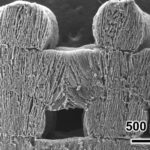A maker by the name of Nekhil has used Raspberry Pi technology to make a pair of glasses capable of translating sign language into speech. Through a fusion of artificial intelligence and live video feeds, these glasses can discern hand gestures, transforming them into audible letters. The initiative, driven by the desire to foster inclusivity and facilitate communication, represents a significant milestone in low-cost assistive technology.

The genesis of this project stems from Nekhil’s profound appreciation for projects that forge meaningful connections among individuals. While the allure of conventional Raspberry Pi projects, such as robotics or environmental monitoring systems, is undeniable, Nekhil sought to channel his ingenuity towards a project with a human-centric focus.
Central to the functionality of these glasses is VIAM, an open-source platform tailored to smart machine projects. Leveraging advanced AI algorithms and image processing techniques, VIAM empowers the Raspberry Pi glasses to seamlessly interpret and articulate hand gestures in real-time. The utilization of the latest Raspberry Pi 5 initially seemed imperative, yet Nekhil’s ingenuity ultimately led him to the compact yet capable Raspberry Pi Zero 2 W, underscoring the project’s resourcefulness and adaptability.
The glasses were designed using Fusion 360 and precision-crafted with 3D printing.. Positioned at the forefront of the glasses frame, the Camera Module captures and analyzes hand movements with remarkable accuracy. This strategic placement ensures optimal visibility and enables effective communication, irrespective of the signer’s orientation.
To delve deeper into this project, enthusiasts can explore the comprehensive project details on Hackster at this link right here.
Source: tomshardware.com
Come and let us know your thoughts on our Facebook, X, and LinkedIn pages, and don’t forget to sign up for our weekly additive manufacturing newsletter to get all the latest stories delivered right to your inbox.










